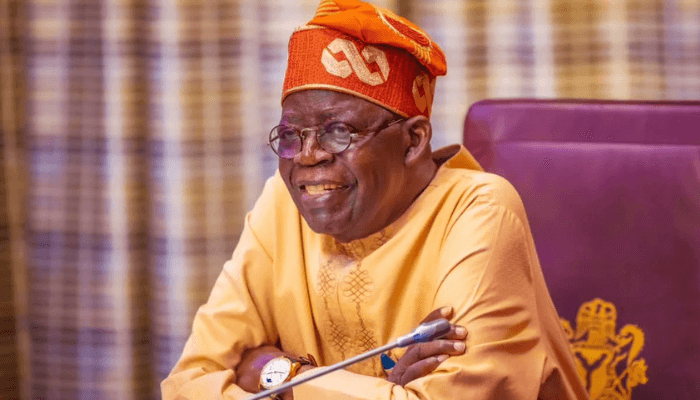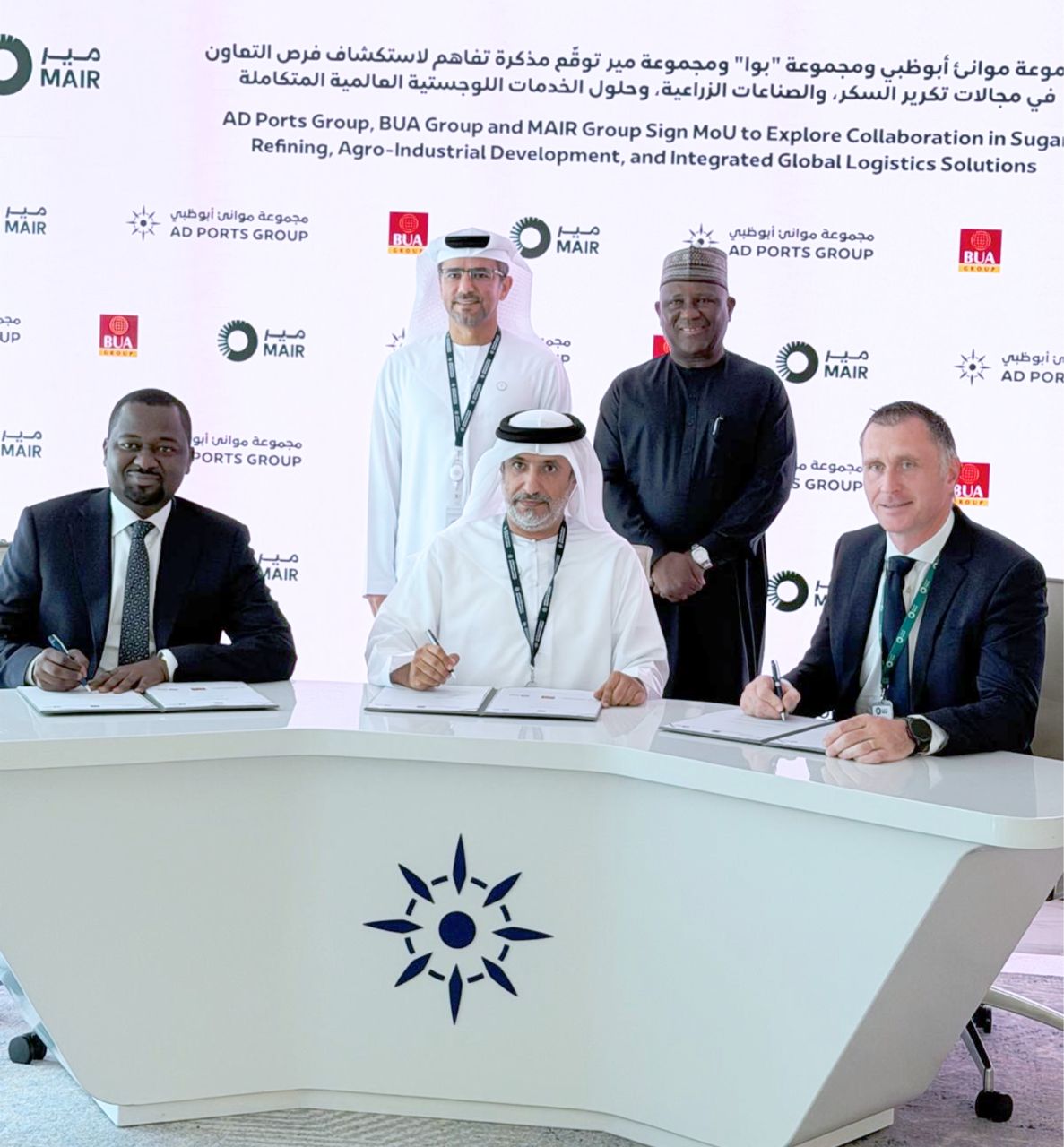Business
IMF’s Bold Advice to Nigeria: How to Fix Economic Reforms and Win Public Trust” By Achimi Muktar

“IMF’s Bold Advice to Nigeria: How to Fix Economic Reforms and Win Public Trust”
By Achimi Muktar
As frustration mounts across Nigeria and other Sub-Saharan African nations undergoing tough economic reforms, the International Monetary Fund (IMF) has stepped in with recommendations aimed at reshaping the narrative. These suggestions focus on addressing the growing civil discontent and turning public opposition into support for reforms critical to stabilizing their economies.
The IMF’s latest Regional Economic Outlook for Sub-Saharan Africa report highlights “adjustment fatigue” gripping nations like Nigeria, Ghana, Ethiopia, and Kenya, where reform measures have triggered social unrest and resistance. In Nigeria, particularly, protests and labour strikes have erupted in response to policies like petrol subsidy removal and foreign exchange deregulation.
However, the IMF believes a path forward exists—one that involves rethinking reform strategies and engaging citizens more effectively.
The Call for Strategic Rethink
In the report, the IMF emphasizes the need for reform strategies that foster inclusivity and public trust while maintaining momentum for economic recovery. “Realizing this opportunity requires rethinking reform strategies to build and maintain pro-growth coalitions among leaders and the general public,” the report states.
The IMF outlined key pillars for successful reform implementation:
Broad-Based Engagement: Governments must actively involve citizens through two-way dialogue, creating a sense of ownership for reforms among the population, businesses, and civil society.
Transparent Communication: Policymakers should clearly articulate the benefits of reforms, the risks of inaction, and the compensatory measures being implemented. This approach, according to the IMF, will counter misinformation and rebuild trust.
Partnerships with Influencers: Engaging parliamentarians, community leaders, and independent experts can amplify reform messaging and provide credible advocacy for change.
Targeted Social Support: Implementing safety nets like retraining programs and job assistance for those hit hardest by reforms can reduce resistance and ease the social cost of change.
Sequenced Reforms: Staggering reforms over time to prevent overwhelming citizens and prioritizing initiatives with immediate, tangible benefits will help win public support.
Rebuilding Trust in Institutions: Strengthening governance, improving transparency, and tackling corruption are essential to ensure that reforms are seen as credible and effective.
The Nigerian Reality
Nigeria’s reform agenda has been met with resistance from citizens grappling with higher living costs and reduced public services. Labour unions have staged strikes, and civil society groups have accused the government of failing to provide adequate safety nets for vulnerable populations.
The IMF acknowledges these challenges but insists that success hinges on trust and inclusivity. “Opinion surveys indicate that trust in the government’s ability to use public resources to promote the population’s well-being is still relatively low in many Sub-Saharan African countries,” the report notes.
The IMF also warns that reforms without complementary measures—such as job creation and social inclusion policies—risk perpetuating social frustration and undermining long-term economic stability.
Turning Pain into Gains
While reforms are painful, the IMF underscores their necessity for unlocking durable and inclusive growth. “As painful as the current policy choices are, deeper and broader reforms will be required to guarantee that countries reap the gains, and not just the pain, of reform,” the report states.
The Fund advises African leaders to demonstrate upfront wins, such as improved infrastructure, better service delivery, and robust economic policies, to galvanize public confidence in the reform process.
The Bigger Picture
The IMF’s Regional Economic Outlook serves as a roadmap for Sub-Saharan Africa’s policymakers, navigating a delicate balance between fiscal adjustments and social harmony. For Nigeria, the report presents an opportunity to recalibrate its approach, engage its citizens meaningfully, and deliver reforms that prioritize the welfare of the people.
By rethinking reform strategies and implementing the IMF’s recommendations, Nigeria could not only weather its current challenges but emerge as a stronger and more inclusive economy. The onus, however, lies with the government to prove that these reforms are for the collective good and not just a painful necessity.
Bank
Alpha Morgan to Host 19th Economic Review Webinar

Alpha Morgan to Host 19th Economic Review Webinar
In an economy shaped by constant shifts, the edge often belongs to those with the right information.
On Wednesday, February 25, 2026, Alpha Morgan Bank will host the 19th edition of its Economic Review Webinar, a high-level thought leadership session designed to equip businesses, investors, and individuals with timely financial and economic insight.
The session, which will hold live on Zoom at 10:00am WAT and will feature economist Bismarck Rewane, who will examine the key signals influencing Nigeria’s economic direction in 2026, including policy trends, market movements, and global developments shaping the local landscape.
With a consistent track record of delivering clarity in uncertain times, the Alpha Morgan Economic Review continues to provide practical context for decision-making in a dynamic environment.
Registration for the 19th Alpha Morgan Economic Review is free and can be completed via https://bit.ly/registeramerseries19
It is a bi-monthly platform that is open to the public and is held virtually.
Visit www.alphamorganbank to know more.
Business
GTBank Launches Quick Airtime Loan at 2.95%

GTBank Launches Quick Airtime Loan at 2.95%
Guaranty Trust Bank Ltd (GTBank), the flagship banking franchise of GTCO Plc, Africa’s leading financial services group, today announced the launch of Quick Airtime Loan, an innovative digital solution that gives customers instant access to airtime when they run out of call credit and have limited funds in their bank accounts, ensuring customers can stay connected when it matters most.
In today’s always-on world, running out of airtime is more than a minor inconvenience. It can mean missed opportunities, disrupted plans, and lost connections, often at the very moment when funds are tight, and options are limited. Quick Airtime Loan was created to solve this problem, offering customers instant access to airtime on credit, directly from their bank. With Quick Airtime Loan, eligible GTBank customers can access from ₦100 and up to ₦10,000 by dialing *737*90#. Available across all major mobile networks in Nigeria, the service will soon expand to include data loans, further strengthening its proposition as a reliable on-demand platform.
For years, the airtime credit market has been dominated by Telcos, where charges for this service are at 15%. GTBank is now changing the narrative by offering a customer-centric, bank-led digital alternative priced at 2.95%. Built on transparency, convenience and affordability, Quick Airtime Loan has the potential to broaden access to airtime, deliver meaningful cost savings for millions of Nigerians, and redefine how financial services show up in everyday life, not just in banking moments.
Commenting on the product launch, Miriam Olusanya, Managing Director of Guaranty Trust Bank Ltd, said: “Quick Airtime Loan reflects GTBank’s continued focus on delivering digital solutions that are relevant, accessible, and built around real customer needs. The solution underscores the power of a connected financial ecosystem, combining GTBank’s digital reach and lending expertise with the capabilities of HabariPay to deliver a smooth, end-to-end experience. By leveraging unique strengths across the Group, we are able to accelerate innovation, strengthen execution, and deliver a more integrated customer experience across all our service channels.”
Importantly, Quick Airtime Loan highlights GTCO’s evolution as a fully diversified financial services group. Leveraging HabariPay’s Squad, the solution reinforces the Group’s ecosystem proposition by bringing together banking, payment technology, and digital channels to deliver intuitive, one-stop experiences for customers.
With this new product launch, Guaranty Trust Bank is extending its legacy of pioneering digital-first solutions that have redefined customer access to financial services across the industry, building on the proven strength of its widely adopted QuickCredit offering and the convenience of the Bank’s iconic *737# USSD Banking platform.
About Guaranty Trust Bank
Guaranty Trust Bank (GTBank) is the flagship banking franchise of GTCO Plc, a leading financial services group with a strong presence across Africa and the United Kingdom. The Bank is widely recognized for its leadership in digital banking, customer experience, and innovative financial solutions that deliver value to individuals, businesses, and communities.
About HabariPay
HabariPay is the payments fintech subsidiary of GTCO Plc, focused on enabling fast, secure, and accessible digital payments for individuals and businesses. By integrating payments and digital technology, HabariPay supports innovative services that make everyday financial interactions simpler and more seamless.
Enquiries:
GTCO
Group Corporate Communication
[email protected]
+234-1-2715227
www.gtcoplc.com
Business
BUA Group, AD Ports Group and MAIR Group Launch Strategic Plan for World-Class Sugar and Agro-Logistics Hub at Khalifa Port

BUA Group, AD Ports Group and MAIR Group Sign MoU to Explore Collaboration in Sugar Refining, Agro-Industrial Development, and Integrated Global Logistics Solutions
Abu Dhabi, UAE – Monday, 16th February 2026
BUA Group, AD Ports Group, and MAIR Group of Abu Dhabi today signed a strategic Memorandum of Understanding (MoU) to explore collaboration in sugar refining, agro-industrial development, and integrated global logistics solutions. The partnership aims to create a world-class platform that strengthens regional food security, supports industrial diversification, and reinforces Abu Dhabi’s position as a hub for trade and manufacturing.
The proposed collaboration will leverage BUA Group’s industrial and logistics expertise, Khalifa Port’s world-class infrastructure, and AD Ports Group’s operational experience. The initiative aligns with the objectives of the UAE Food Security Strategy 2051, which seeks to position the UAE as a global leader in sustainable food production and resilient supply chains. It also aligns with Nigeria’s food production- and export-oriented agricultural transformation agenda, focused on scaling domestic capacity, strengthening value addition, improving post-harvest logistics, and unlocking new markets for Nigerian produce across the Middle East, Asia, and beyond.

Photo Caption: L-R: Kabiru Rabiu, Group Executive Director, BUA Group; Cpt. Mohammed J. Al Shamisi, MD/Group CEO, AD Ports Group; Saif Al Mazrouei, CEO (Ports Cluster) AD Ports Group; Abdul Samad Rabiu, Founder/Executive Chairman, BUA Group; and Steve Green, Group CFO, MAIR Group
Through structured aggregation, processing, storage, and maritime export channels, the partnership is designed to reduce supply chain inefficiencies, enhance traceability and quality standards, and also create a predictable trade corridor between West Africa and the Gulf.
BUA Group—recognised as one of Africa’s largest and most diversified conglomerates, with major investments across sugar refining, food production, flour milling, cement manufacturing, and infrastructure- brings extensive industrial expertise and large-scale operational capability to the venture. MAIR Group will provide strategic support in developing integrated logistics and agro-industrial solutions, creating a seamless platform for production, storage, and distribution.
Abdul Samad Rabiu, Founder and Chairman of BUA Group, said:
“This MoU marks an important milestone in BUA’s international expansion and reflects our long-term vision of building globally competitive industrial platforms. Together with AD Ports Group and MAIR Group, we aim to develop sustainable food production and logistics solutions that strengthen regional supply chains and support the UAE’s Food Security Strategy 2051.”
He further added that, “This partnership represents not just a commercial arrangement but a strategic food corridor anchored on shared economic ambition, resilient infrastructure, and disciplined execution, reinforcing long-term food security objectives for both nations.”
A representative of MAIR Group added:
“This collaboration underscores our commitment to advancing strategic industries in Abu Dhabi and building integrated solutions that reinforce the UAE’s position as a global hub for trade, food security, and industrial excellence.”
A spokesperson from AD Ports Group commented:
“Our partnership with BUA Group and MAIR Group highlights Khalifa Port’s role as a catalyst for high-impact industrial investments. This initiative will enhance regional food security, strengthen global trade connectivity, and support Abu Dhabi’s economic diversification goals.”
This MoU marks a historic collaboration that combines world-class infrastructure, industrial expertise, and strategic vision, setting the stage for a sustainable and resilient food and logistics ecosystem that will benefit the UAE, the region, and global markets alike.
-

 celebrity radar - gossips6 months ago
celebrity radar - gossips6 months agoWhy Babangida’s Hilltop Home Became Nigeria’s Political “Mecca”
-

 society6 months ago
society6 months agoPower is a Loan, Not a Possession: The Sacred Duty of Planting People
-

 society5 months ago
society5 months agoReligion: Africa’s Oldest Weapon of Enslavement and the Forgotten Truth
-

 news6 months ago
news6 months agoTHE APPOINTMENT OF WASIU AYINDE BY THE FEDERAL GOVERNMENT AS AN AMBASSADOR SOUNDS EMBARRASSING






